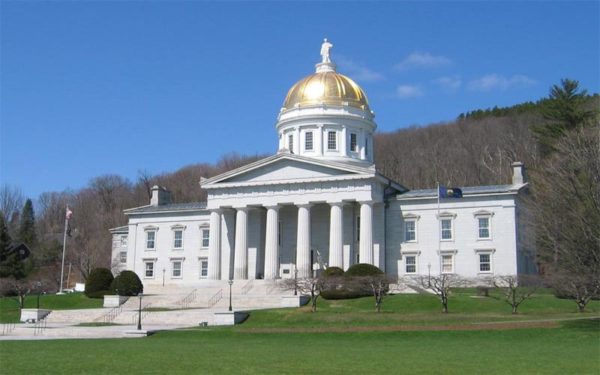Jan 08, 2020
The Maine PFAS Task Force recently released a draft of its recommendations for how to protect residents from these dangerous chemicals, but they fall well short of the bold action that is needed. But there are still opportunities for legislators and regulators to make a difference.
Jan 07, 2020
With the Vermont General Assembly reconvening, CLF is working with lawmakers to advance solutions that protect our natural resources, build healthy communities, and sustain a vibrant economy on behalf of all Vermonters. This session, we’re focusing on cutting carbon, limiting plastic pollution, protecting the state from toxic “forever chemicals,” defending water quality, and more.
Dec 27, 2019
“Stormwater pollution continues to wreak havoc on Massachusetts waters,” said Heather Govern, Director of CLF’s Clean Air and Water program. “Cities and towns are responsible for reducing this pollution and many have shirked these duties for years. This new permit forces them to prioritize protecting our waters, but CLF is prepared to take legal action if these flagrant violations continue.”
Dec 23, 2019
If you live anywhere near a school, you have likely seen buses idling while waiting for students to board or exit. Unfortunately, this routine practice can translate to serious health problems for kids and adults. Building on prior cases against tailpipe polluters, we recently announced a lawsuit against DATTCO, Inc. to force their buses to stop idling their engines and polluting neighborhoods with toxic diesel exhaust.
Dec 20, 2019
“Pollution is killing the Cape bays and beaches that resorts like Wychmere depend on,” said Chris Kilian, Vice President of Strategic Litigation at CLF. “Instead of wasting everyone’s time and expense seeking to justify continued pollution, the resort should clean up the mess it has created in Wychmere Harbor. CLF will continue this fight against the destruction of Cape waters that belong to all of us.”
Dec 20, 2019
“Families should have confidence in the safety of their drinking water,” said Brad Campbell, executive director of the Conservation Law Foundation.
Dec 18, 2019
“These rules are good news for public health in Massachusetts,” said Brad Campbell, president of the Conservation Law Foundation.
Dec 17, 2019
“Diesel exhaust pollution robs children of their futures,” said Kenta Tsuda, Staff Attorney at CLF. “Kids’ health should not be put at risk simply by riding the school bus or playing outside. DATTCO must immediately stop spreading toxic pollution in the communities it’s meant to serve.”
Dec 17, 2019
“As a result of those intense rains, that treatment system is being overwhelmed on a regular basis, leading to violations of their Clean Water Act permit and leaving exposure of local waters and local communities to some pretty powerful carcinogens and other toxins,” said Brad Campbell, president of the Conservation Law Foundation.
Dec 13, 2019
“This is great news for public health in the Commonwealth,” said CLF President Brad Campbell. “I applaud Governor Baker for setting protective standards for six of the so-far unregulated toxic PFAS compounds showing up in drinking water systems throughout New England, and for giving Massachusetts cities and towns new resources in his supplemental budget to make local water supplies safe.”







